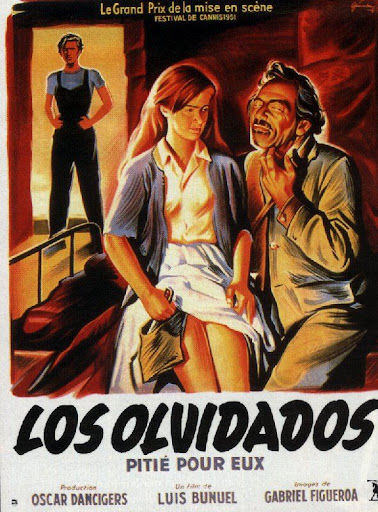
It's Buñuel Week. Yay!
And what better way to start it off than Los olvidados, which I found to be one of the Master's most compassionate films. Oh, and don't forget we have Un chien andalou already creeping about in the bowels of FTD, with much more Buñuel to follow. This is going to be a fun ride, especially if I pepper in some punk rock and Dada along the journey- a journey that will end at Santiago de Compostela. That's a hint. Connect the damn dots and enjoy!
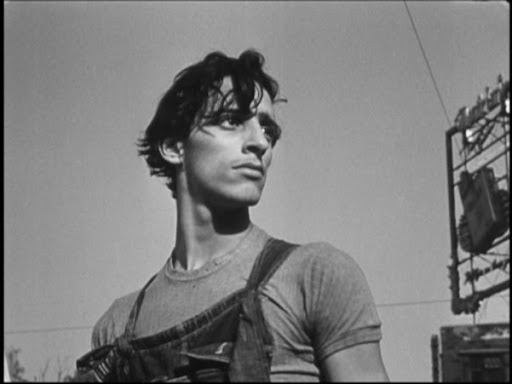
From Ed Gonzales at Slant Magazine:
After completing Gran Casino, Luis Buñuel began work on a screenplay with the Spanish poet Juan Larrea called Ilegible Hijo de Fluta (The Illegible Son of the Flute). When Óscar Dancigers couldn't find financing for the project, Buñuel agreed to direct The Great Madcap as a favor to his Gran Casino producer. The director found the finished product "impossibly banal," though the film's box office success all but guaranteed that Buñuel could now make whatever he wanted. "Oscar was ready for a 'real' film, and proposed that we make one about the slum children, abandoned and living from hand to mouth in Mexico," says Buñuel in The Last Sigh.
Los Olvidados (The Young and the Damned), an "attack on the sadness that ruins children before they have a chance," was penned by Buñuel, Madcap writer Luis Alcoriza, and an uncredited Larrea. Inspired in part (at least in spirit) by Vittorio de Sica's similarly themed Shoeshine (a film Buñuel greatly admired), Los Olvidados was vilified by the country's xenophobic press and labor unions who claimed the film dishonored "their" Mexico. By calling attention to the misery of Mexico City's young street urchins, Buñuel exposed an "evil" hiding behind the imposing structures of every big modern city. Los Olvidados would go on to win Buñuel the Best Director prize at the Cannes Film Festival and restore his notoriety as one of cinema's most respected provocateurs.
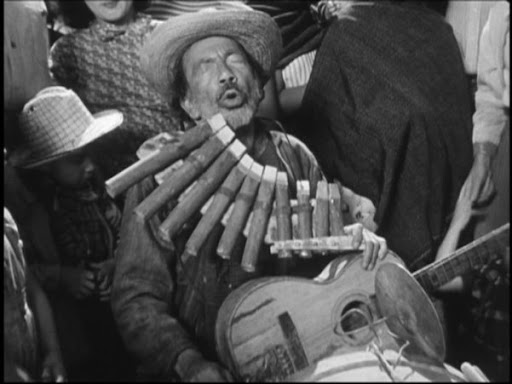
If the innocent Pedro (Alfonso Mejía) is the film's Jack Dawkins, El Jaibo (Roberto Cobo, star of Arturo Ripstein's excellent The Place Without Limits) is the incorrigible Artful Dodger. Less controversial for the brutality of its images than for the objectivity of Buñuel's point of view, Los Olvidados purposefully lacks optimism; indeed, the director saw danger in giving solutions to problems best left to "the hands of the progressive forces of our times." This objectivity is all over the film, and nowhere is this more memorable than in the way Buñuel powerfully introduces the titular forgotten ones via a mock game of bullfight, with the camera taking the point of view of a red cape as a group of boys with grotesque faces charge toward it as if purposefully antagonizing the spectator. This is the intensity of Buñuel's gaze.
El Jaibo calls a young boy a "pansy" for not smoking and orchestrates a robbery against the blind Don Carmelo (Miguel Inclán), the film's unlikely voice of reason. "Is there no mercy for a poor blind man?" says a manipulative Carmelo, looking for a guide to lead him across a busy street. Carmelo posits a moral hierarchy to suffering when he befriends a young boy, Big Eyes, whose father has abandoned him in the town center. Carmelo scoffs at the boy's pain: "He's not coming back. These things happen every day." At the very least, the boy has his vision. Yet with the pervasive ugliness and desperation that permeates Los Olvidados, Buñuel may as well be contemplating blindness as a luxury: Perhaps it is better not to see what these children are going through. Indeed, the film's obsession with sightlessness is very much Buñuel's way of gauging the political climate of his time: Throughout the film, he shows us how society is responsible for creating its lost ones and how it subsequently refuses to "see" them.
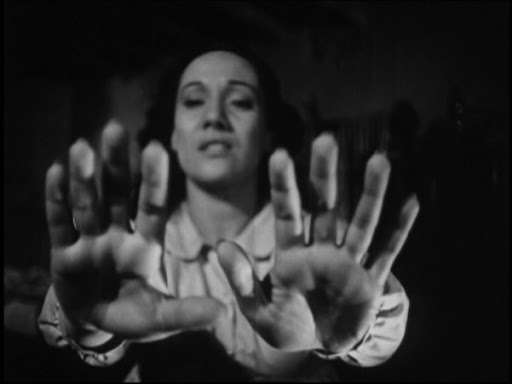
Los Olvidados is a film obsessed with the terror of being left alone in the world and Buñuel evokes this desperation via references to the nourishment of mother's milk: Carmelo drinks goat milk because it cleanses the body; Meche, a local girl, washes her legs with milk because it will preserve their beauty; and Big Eyes throws himself to the grown in a fit of hunger, sucking milk from the teat of a cow. Pedro must tragically plead for the love of his mother, a hard-working woman who punishes her eldest son (she denies him love, refuses him his dinner) because of his supposedly poor behavior. "Why should I love you?" she asks, oblivious that her son is conflicted because he can't provide for his family. Buñuel powerfully stacks one sign on top of another, and the emotional force of the pile-up only intensifies the sadness and desperation of his characters.
Jaibo accuses an older boy, Julien (Javier Amézuca), of sending him to jail and kills him during a fit of rage; Pedro watches in terror, forced to remain silent for fear that he too will be murdered. Jaibo, the film's leg fetishist, grabs Meche's leg when his hand reaches out from inside a pile of hay and later seduces Pedro's mother by staring at her legs and manipulatively engaging the memory of his dead mother ("she looked like a real virgin"). Seduced by Jaibo off-screen, Pedro's mother seems to also take her sexual indiscretions out on her son. The film's oppressive themes all come together in the film's legendary and disturbing dream sequence. Pedro's spirit rises from his body and is tortured by the ghost of the dead Julien and his scantily clad mother—all the while, an inexplicable wind claws at her lily-white nightgown. She floats around the room, smothering her son with love and a raw piece of meat that dangles from her hands. There's no escape from the brutality of their world—not even in dreams.
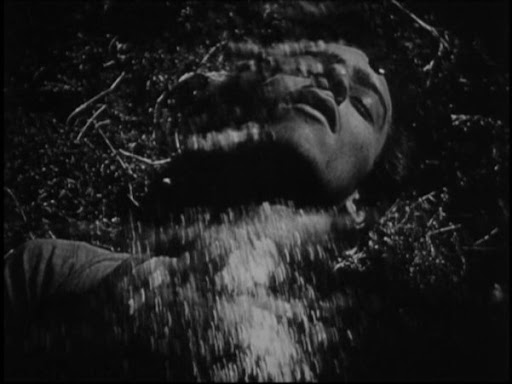
Carmelo's little wagon bears a sign that reads "me mirabas" (rough translation: "You looked at me"). Perhaps the sign represents the pervasive gaze of the film's youth. When Jaibo is denied a cigarette by a legless man who moves around on a dolly, Jaibo and his posse tear at the helpless man's clothes, throwing him onto the sidewalk and thrusting his dolly down a hill. Though Carmelo defends hungry parents who abandon their even hungrier children ("Extra mouths hinder!"), he is still seemingly aware that he must constantly "look" beneath his blindness at children who turn to evil when forgotten by their parents. Somewhere in the big city, a man approaches Pedro, propositioning him for sex before an approaching police officer interrupts their negotiation. All the while, Buñuel's camera bears silent witness from inside a store's display window, whose expensive trinkets are suggestive of Pedro's nothingness.
Wisked to juvenile court by his uncaring mother, Pedro loses all passion for life: he kills a chicken during a schoolyard fight (a passionate lover of animals, he earlier protected a hen from his angry mother); the 20 pesos given to him as a test by the court's thoughtful supervisor are stolen from him by Jaibo; and he all but guarantees his death when he violates the code of the streets and shouts before a group of children and adults that Jaibo was responsible for Julien's death. Though his viciousness is unflinching, Jaibo remains sympathetic if only because Pedro's loss of passion must be indicative of Jaibo's own journey to nothingness. Jaibo kills Pedro and just as his mother finds love for her angelic child, Carmelo and Mecha throw his corpse into a rocky ravine. "No, no...I'm falling into the black hole. I'm alone...alone...as always...my child...as always...go to sleep and stop thinking...my child...sleep," says Jaibo when he meets his own demise, echoing the universal plight of the film's forgotten ones.

Technical Information:
Title: Los olvidados/The Young and the Damned
Year: 1950
Country: Mexico
Director: Luis Buñuel
Source: DVD5 Retail
DVD Format: NTSC
Container: .iso + mds
Size: 4.18 GB
Length: 1:16:50
Programs used: ImgBurn
Resolution: 720x480
Aspect Ratio: 4:3
Video: MPEG2 @ ~5200 kb/s
Frame Rate: 29.97 fps
Audio: Spanish- Dolby AC3 Stereo @ 192 kb/s
Subtitles: English, French
Menu: Yes
Video: Untouched
DVD Extras (French only):
- Fiche Historique
- Filmographie
- Fin inedite
- Terre sans pain (Las Hurdes- 1932)
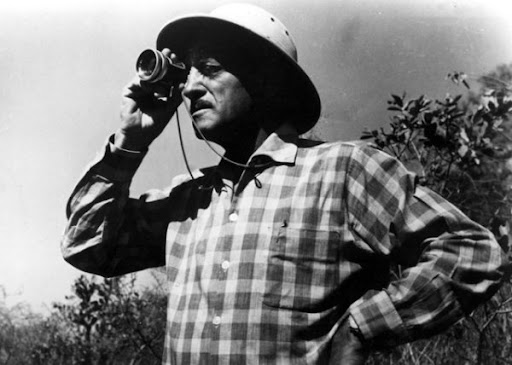
(Use JDownloader to automate downloading)
Los olvidados Megaupload Links


